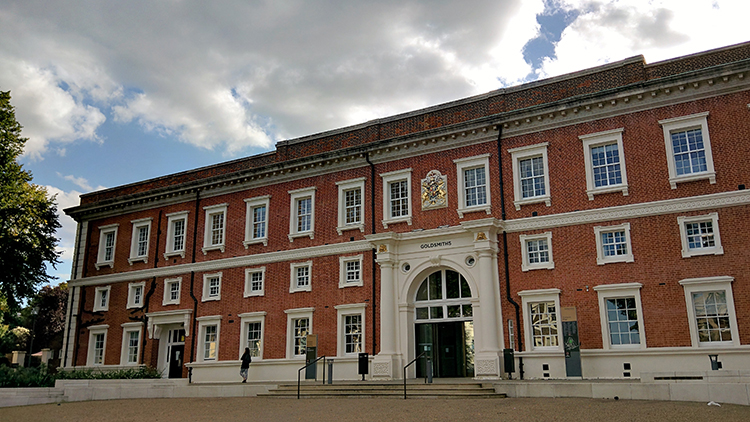
Goldsmiths are asking first year students who are asymptomatic to get tested for Covid-19 in a bid to contain infections in halls of residence after a numbers of cases were reported on campus last week.
A spokesperson for Goldsmiths said today: “As of 13 October: 30 students and fewer than five members of staff have reported to the College that they have tested positive for Covid-19.”
The move follows concerns from the Goldsmiths’ Student Union (SU) – who are independent of the university – that they are not confident that Goldsmiths is acting quickly or decisively concerning Covid-19 in accommodations.
There is a mobile testing unit providing on-site tests at Loring Hall for students who are: not currently in isolation, or haven’t received a test since September 26 and are not currently exhibiting symptoms.
Lauren Corelli, president of the SU, said: “Goldsmiths believes it is safe to fill halls to 100% capacity. We have been contacted by students since they began moving into halls who have had safety concerns. This has become a lot more frequent since Goldsmith’s announcement that there are confirmed cases of Covid-19 on campus, and then even more so as it became clear at the end of last week that there were outbreaks in halls.”
“We are demanding they [Goldsmiths] take the welfare of self-isolating and Covid-positive students seriously, as well as all other students who are at risk in halls”.
Goldsmiths said they were working around the clock to help students, adding that those who had reported they were self-isolating had been contacted and offered advice and support.
But Corelli said the SU believed messages from the University were “cold”.
She said: “They must interrogate their outbreak prevention plans, which they seem to think are going well, and listen to the real experiences of students in accommodation. Students have reported to us receiving almost zero pastoral support, ‘cold’ communication from the college, and difficulties accessing daily necessities. There have even been reports from students who have not eaten for entire days as food isn’t being delivered to their flats.
“While our capacity is limited, this week has involved a lot of phone calls, zooms, WhatsApp, emails, social media chats with students to check-in on them, to see if and how we can help, and to make sure their voices are heard by Goldsmiths. We have been working all hours and weekends to make sure that this happens. As numerous students have reported to us that they are unable to get food delivered to their flats, we are furiously trying to set up a mutual aid network, so that students can access whatever it is they will need without stress and in a safe way.”
A first-year student at Quantum Court, when asked about the support system in place from the University, said: “I haven’t heard of such support system. We in Quantum Court are very careful about having only six people gathered because we don’t want to pay fines that most of us could not afford”.
A spokeperson for Goldsmiths, University of London said they had good support systems in place. He added: “Our teams are on campus working around the clock to offer advice and support and ensure students who are self-isolating remain connected to the Goldsmiths community.
“We contact every student who reports they are self-isolating and give them advice about where they can order food and other essentials and how we can help them to collect their deliveries, use shared facilities safely, and access wellbeing support”
“Students can access wellbeing support by email, phone, or online. Our teams are in regular contact with all those who are self-isolating and provide targeted support to vulnerable students where we identify that they are struggling.”
A spokesperson for Goldsmiths University and College Union said, “It is historical that the emotional labour falls to lecturers and tutors, but the impact of the return to campus has had an impact on all professional staff, including those in Administrative Roles, Student Services, Careers and the Library. We all have been working above and beyond to ensure students are safe with risk assessments and return to campus being put on them with much less central support than before. It is only natural that students will feel comfortable talking to someone they already know if they are feeling vulnerable, which just highlights that we need to keep our staff on and not cut jobs in the tough economic times ahead. May we add, it is often the most precariously-employed staff who are on the frontline with students and pick up on this one-to-one level of care. That could extend to student-facing workers in all areas, not just teaching staff.”
A guide for students who are self-isolating can be found online.




